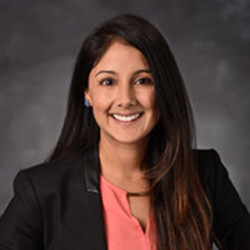Gastroesophageal reflux symptoms affect up to 20% of the adult population and are among the top reasons patients seek ambulatory care. However, several aspects of the approach and management of GERD are unclear or controversial.
My colleague, Dr. Gary Falk, and I will moderate the “Controversies in GERD Diagnosis & Management” session at DDW on Saturday, May 18. This session will provide an overview of the current guidelines and recommendations in GERD, including typical esophageal symptoms and laryngopharyngeal symptoms, with an emphasis on the gray areas that clinicians and patients often face.
To start, Dr. Prakash Gyawali will present the recently updated Lyon consensus 2.0 for the modern definition of GERD. Dr. Gyawali will delineate normal or abnormal ambulatory reflux monitoring findings according to Lyon 2.0. Moreover, Dr. Gyawali will examine the next steps in evaluation and management when reflux monitoring testing falls in an inconclusive range.
Next will be two debates. The first debate will focus on extra-esophageal reflux, also known as laryngopharyngeal reflux, and the role of upfront reflux testing. Dr. Walter Chan will debate on the pro side, arguing that all patients with suspected extra-esophageal reflux need to undergo reflux testing as opposed to a reliance on symptoms or empiric trials of proton pump inhibitor (PPI) therapy. On the other hand, I will debate on the con side, making the case that upfront reflux testing for all patients is not practical and leads to unnecessary testing and delays in care. Instead, I will present data to support a phenotype and targeted approach to patients with laryngopharyngeal symptoms.
The next debate will focus on first-line therapy for patients with GERD. Dr. Kerry Dunbar will highlight the importance of patient education and lifestyle interventions, emphasizing the ability of patients to minimize or stop pharmacologic therapies with a reduction in weight and changes in meal practices and sleep position. Dr. Philip Katz will oppose Dr. Dunbar, making the argument that anti-secretory therapy, such as PPI, is more effective and practical than lifestyle interventions in the real world. Finally, Dr. Mimi Canto will present the state-of-the-art endoscopic and surgical anti-reflux interventions available to patients with refractory GERD and a personalized approach to therapeutic selection.
This session will be excellent for clinicians who care for patients with GERD. The hybrid format of lectures and debates will provide an engaging atmosphere while also comprehensively reviewing the modern-day paradigm of GERD.
Dr. Yadlpati has no conflicts of interest to report.
Illustration by April Brust







